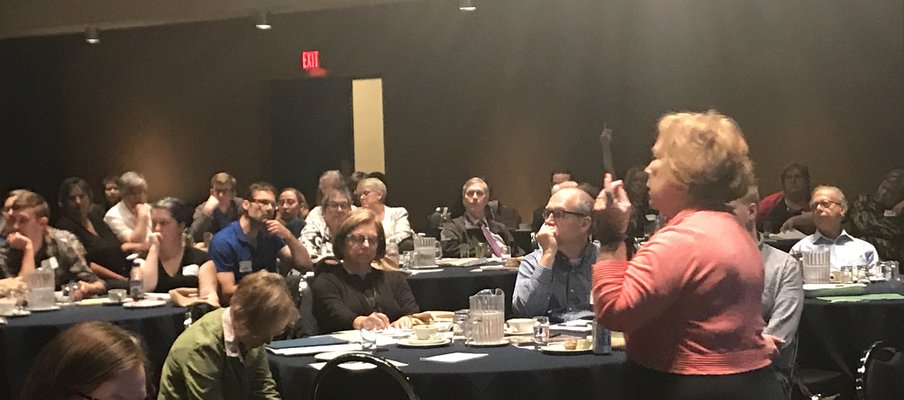Outreach Makes a Difference

Filling out a funding application should not be a difficult process, but it helps if applicants have a better understanding of how funders think. That’s why SaskCulture staff spend time working with groups and organizations to help them reach positive outcomes.
Applicants can contact SaskCulture program staff for a wide range of advice on how to navigate the granting process. They can speak with program staff to help determine which grant program best fits their project idea, to get advice on what type of information needs to be provided in the application to address the grant criteria, and to receive technical support if they require assistance using SaskCulture’s Online Granting Platform (OGP).
Consultants have many examples of applicants who have either reached out for more information, or they have helped during outreach presentations. Badger Heit notes how a graduate student was able to access funding from the Aboriginal Arts and Culture Leadership grant to teach languages at the White Buffalo Youth Lodge. Consultant Dennis Garreck noted how meetings at the Saskatchewan Urban Municipalities Trade Show linked community leaders back to the Community Engagement and Planning Grant.
SaskCulture staff will speak with applicants over the phone, in-person meetings, or make presentations to larger groups when requested. Over the past year, SaskCulture consultants and grants administrators made an estimated 322 visits to community groups either presenting on SaskCulture services or speaking about resources available. An estimated 2,330 individuals attended SaskCulture’s grant-writing workshops.
Consultant Dominga Robinson held numerous grant-writing workshops over the past year in communities around the province including northern Saskatchewn. “I’ve seen an improvement in the preparation, planning and data provided in grant applications submitted over the past year,” she notes. “It seems to have a direct correlation to applicants attending grant-writing workshops.” This year, Robinson has held workshops in five communities — La Ronge, Buffalo Narrows, Saskatoon, Kisbey and Regina.
Museum Grant Program co-leads Angie Sawatzky and Catherine Folstad attended museum network meetings throughout the province prior to the first online deadline, providing extensive consultation on the grant criteria, as well as the OGP.
Connections with consultants and grants administrators may be one call or they could be conversations over a period of time that result in success for the community. Consultant Paul Gingras worked with several African groups over a number of years to bring together their partnership as the African-Canadian Cultural Resources Network, which currently receives funding from SaskCulture for various community initiatives. Supporting program linkages and partnerships is a common benefit of consultants' work in various communities.
SaskCulture never likes to turn down any eligible idea, but high levels of competition and funding available require adjudication, which rewards those that best meet the funding criteria. It is important for applicants to remember that due to these factors, unsuccessful applicants should not necessarily give up. Peer assessment panels spend time providing feedback that can help an applicant with their next applications. All applicants are also encouraged to speak with consultants, adjust accordingly and apply again, if able. Consultants can also help refer applicants to other funding resources in the province, if applicable.
Visit SaskCulture.ca to connect to a SaskCulture Consultant or Grants Administrator.

